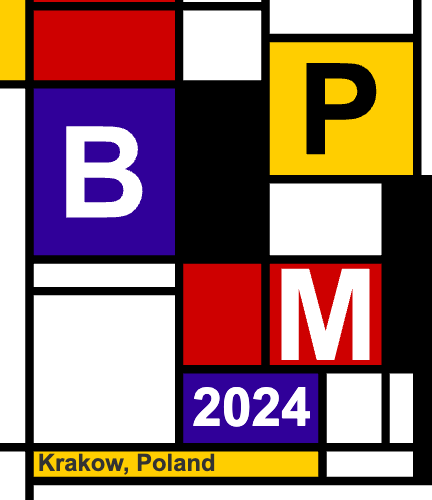Aim and scope
The Blockchain Forum invites submissions of papers on techniques for and applications of distributed ledger technologies (DLTs), blockchains, and related approaches. Contributions of conceptual, technical, and application-oriented nature are welcome both from inside and outside the BPM community. Works showing relevance for contemporary organisations (governmental bodies or enterprises alike) and domains (from healthcare to education, from finance to logistics, etc.) are especially sought.
A blockchain is a distributed data structure providing guarantees of immutability and integrity protection, providing a practical solution to challenging problems in coordination. Blockchain-based systems open up diverse opportunities in the context of the BPM lifecycle to redesign business activities in a wide range of fields, including healthcare, supply chain, logistics, and finance. However, these opportunities come with challenges to security and privacy and to scalability and performance.
Blockchain technology has already seen both academic interest and practical adoption, and several approaches exist which combine BPM and blockchain, e.g., blockchain-based execution of DMN decisions, collaborative business process execution on blockchain, process monitoring and auditing on data stored by distributed ledgers, secrecy-preserving sharing of data among actors in a multi-party process setting, the use of process mining to analyze and validate smart contracts, and much more.
The Blockchain Forum provides a platform for discussion and introduction of new ideas related to research directions within techniques for and applications of blockchain and DLT. Relevant topics include, but are not limited to, the following.
Specification, design, and modelling
- Novel paradigms for DLT-based process-aware information systems (PaIS) design
- Process model transformation for on-chain/off-chain enactment
- On-chain process behaviour obfuscation
- On-chain enforcement of regulations and business rules
- Synthesis of smart contracts from high-level specifications of business collaborations
- Agile DLT-based process design and patterns
- DLT design evaluation rubric for business and compliance requirements
- Interoperability and cross-chain processes
Verification, monitoring, and analytics
- Distributed process monitoring, predictive models and anomaly detection
- Distributed compliance monitoring and conformance checking
- Process mining on ledger and transaction graph analysis
- On-chain and off-chain process data analytics
- Formal verification of DLT-based processes
- Process auditing on blockchains
Verifiable identity and process data
- Authentication and identity management in DLT-based PaIS
- Data provenance and management in DLT-based PaIS
- Decentralised and self-sovereign identity schemes within multi-party process execution
- On-chain/off-chain verification of identity and process data
- Oracles, off-chain and cross-chain information exchange for decision support
- Decentralised data governance and distributed data storage for PaIS
Security and privacy
- Access control and trust in DLT-based business networks
- DLT-based process resilience (e.g., against forks, transaction reordering, incentive attacks)
- Adversarial attacks and mitigations for security and privacy in DLT-based PaIS
- Security requirements engineering for DLT-based PaIS
- Privacy and confidentiality models for DLT-based information systems
- Privacy- and secrecy-enhancing techniques for DLT-based processes (e.g., based on encryption, or ZKProof)
Additional topics
- Regulatory compliance (e.g., GDPR, KYC, AML) and legal aspects of DLT-based PaIS
- Sustainability of DLT-based PaIS
- Scalable models for blockchain-based process execution
- Vertical applications of DLT-based PaIS (e.g., healthcare, supply chain, finance, logistics)
- Usability and user experience of DLT-based PaIS
The format of the forum will emphasise interaction and discussion. Talks are expected to foster discussions and are aimed at exchanging experiences and ideas.
Paper Submission
Authors are invited to submit original, unpublished papers within the forum’s topics. Papers must be written in English and cannot be simultaneously submitted to other journals or conferences. The maximum length of the paper is 15 pages in total, including figures, tables, references, etc. Shorter papers are also welcome.
Submissions must be prepared according to the format of Lecture Notes in Business Information Processing (LNBIP) specified by Springer. The title page must contain a short abstract and a list of keywords, preferably inspired by the list of topics above. Papers must be submitted electronically via EasyChair.
Important Dates
Abstract submission: Tuesday 21 May 2024 28 May 2024 (optional)
Paper submission: Tuesday 28 May 2024 4 June 2024
Author notification: Thursday 27 June 2024
Camera-ready submission: Friday 5 July 2024
BPM Blockchain Forum Chairs
Claudio Di Ciccio, Utrecht University, Netherlands
Walid Fdhila, SBA-Research, Austria
bpm2024-bcforum@easychair.org
Program Committee
Paolo Bottoni, Sapienza University of Rome, Italy
Sarah Bouraga, University of Namur, Belgium
Marco Comuzzi, Ulsan National Institute of Science and Technology, South Korea
Hans-Georg Fill, University of Fribourg, Switzerland
Walid Gaaloul, Télécom SudParis, France
José María García, University of Seville, Spain
Luciano García-Bañuelos, Tecnológico de Monterrey, Mexico
Sérgio Luís Guerreiro, Instituto Superior Técnico, University of Lisbon, Portugal
Felix Härer, University of Fribourg, Switzerland
Marko Hölbl, University of Maribor, Slovenia
Slinger Jansen, Utrecht University, Netherlands
Kais Klai, Université Sorbonne Paris Nord, France
Julius Köpke, University of Klagenfurt, Austria
Orlenys López Pintado, University of Tartu, Estonia
Raimundas Matulevicius, University of Tartu, Estonia
Giovanni Meroni, Technical University of Denmark, Denmark
Andrea Morichetta, University of Camerino, Italy
Eugenio N. Nemmi, Sapienza University of Rome, Italy
Alexander Norta, Tallinn University of Technology, Estonia
Günther Pernul, Universität Regensburg, Germany
Pierluigi Plebani, Politecnico di Milano, Italy
Michael Rosemann, Queensland University of Technology, Australia
Stefan Schulte, TU Hamburg, Germany
Mark Staples, Data61, CSIRO, Australia
Stefan Tai, Technical University of Berlin, Germany
Alfred Taudes, Vienna University of Economics and Business, Austria
Kaiwen Zhang, École de technologie supérieure ÉTS, Canada
